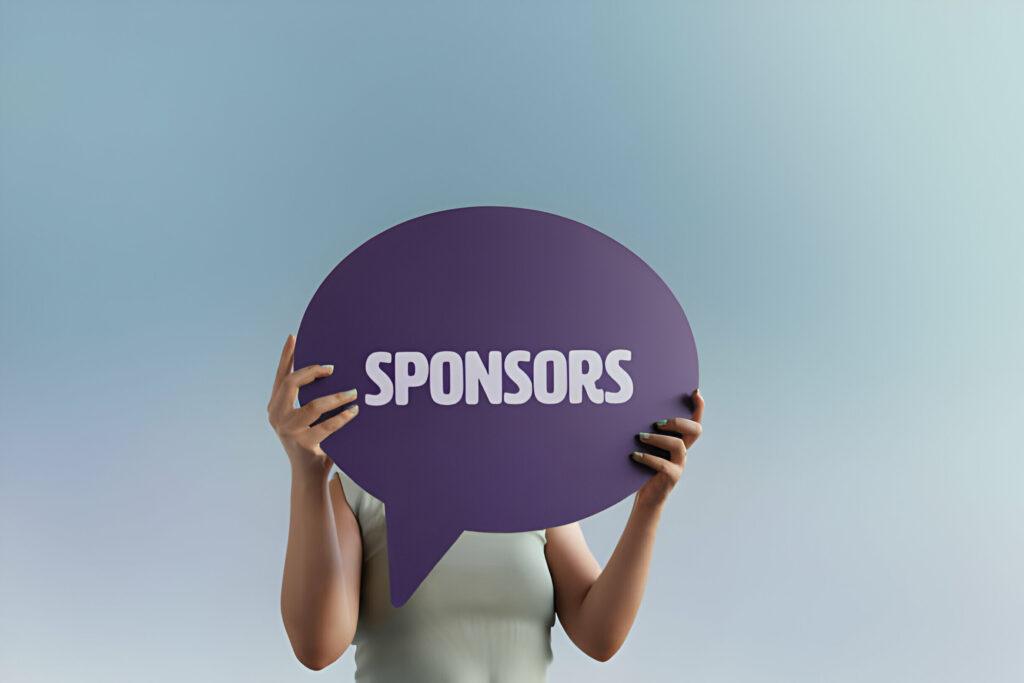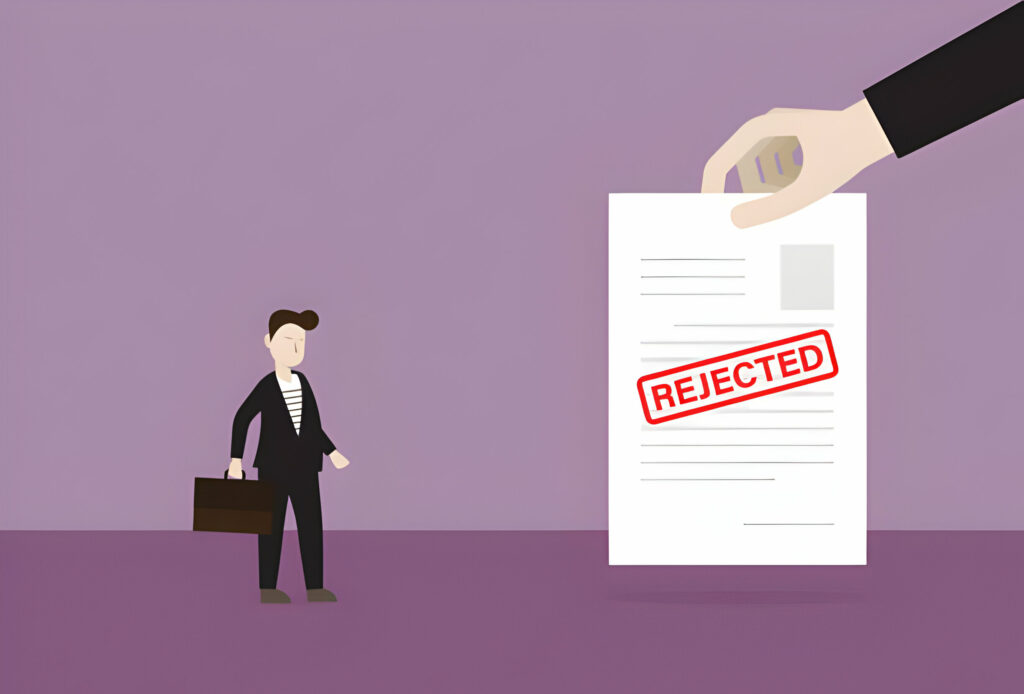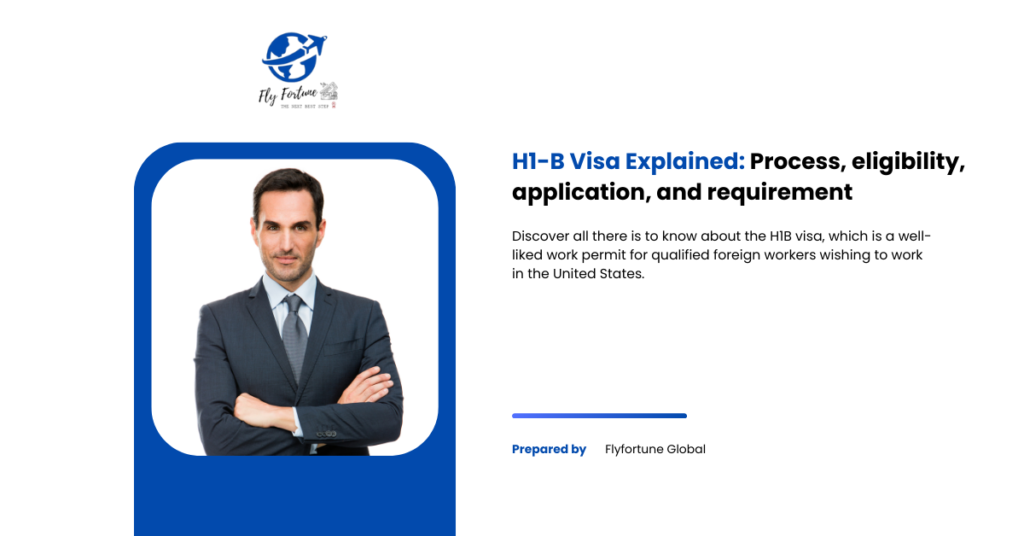H1B Visa Explained
Understand the H1B visa for working in the US
- What is H1B visa?
- How can I get the H1B Visa?
- What is the Process to get H1B visa?
- What are the documentation we need for H1B Visa?
- What is the lottery system in H1B Visa?
- What is the fees of H1B Visa?
- What is h1b visa sponsorship?
- What is the top reason for H1B rejection?
- What are problems with H1B visa?
- Conclusion
What is H1B visa?
Ever dreamt of working your magic in the US? Whether you’re an engineering wizard, a code-slinging ninja, or a healthcare hero, the H-1B visa might be your golden ticket. But before you book your one-way trip to Hollywood (or Silicon Valley, whichever floats your boat), let’s break down the nitty-gritty.
What exactly is an H1B Visa?
Think of it as a temporary work pass for rockstars in their field. It lets foreign professionals like you showcase your skills in the US for up to 6 years (3 years initially, with 1-year extensions possible). Think coding the next big app, building bridges that defy gravity, or healing minds and bodies.
How can I get the H1B Visa?

Well, here’s the catch: your US employer needs to be your biggest cheerleader. They gotta convince the US government that you’re the Einstein of your field and nobody else can fill your shoes (metaphorically speaking, of course). They’ll do this by filling out some paperwork, proving your skills, and showing they’re paying you fairly.
What is the Process to get H1B visa?
Aspiring to navigate the intricate corridors of the H1B visa process? Fear not, intrepid adventurer! This roadmap will guide you through each twist and turn, from finding your American sponsor to claiming your profession
Stage 1: The Quest Begins (6-12 months before the filing season)

Craft your professional narrative: Polish your resume, showcasing your achievements and aligning them with your desired US role. Gather letters of recommendation and work portfolios, if applicable.
Seek your American ally: Connect with US companies in your field who might need your expertise. Research their H1B sponsorship history and build relationships.
Master the art of paperwork: Familiarize yourself with the required documents (diplomas, transcripts, work experience proof, etc.) and ensure their organization and validity.
Stage 2: Entering the Arena (March-April of the application year)
The petition power play: Your US sponsor files Form I-129 with USCIS, detailing the job specifics and why you’re the chosen one.
Fee flurry: Prepare to pay the application fee and any additional processing costs associated with your case.
Stage 3: The Lottery Labyrinth (April-May)
The grand gamble: If more applications are received than visas available, a random lottery determines who proceeds. Holding a master’s degree offers bonus points in this game of chance.
Fingers crossed, patience armed: The lottery results are typically announced in June.
Stage 4: Visa Victory or Setback (July-October)
For the chosen few: If selected, prepare for an interview at a US consulate in your home country. Be ready to discuss your qualifications and the details of your US job offer.
If the stars don’t align: Should you not be selected, don’t despair! Reassess your strategy, consider alternative options, and consult with an immigration attorney for personalized guidance.
Fingers crossed, patience armed: The lottery results are typically announced in June.
Stage 5: Claiming Your American Dream (October-November)
Visa in hand, heart alight: If your interview is successful, you’ll receive your coveted H-1B visa. Prepare for your US arrival, secure housing, and finalize any pre-departure logistics.
Embrace the journey: Your American adventure awaits! Network, build your career, and contribute to the vibrant US professional landscape.
What are the documentation we need for H1B Visa?

While the H1B visa opens doors to the American professional landscape, there’s a necessary pit stop: the documentation gauntlet. Think of it as a bridge with toll booths, each one requiring specific paperwork to ensure a smooth crossing.
First Booth: Academic Accolades:
Diploma Delights: Dust off your diplomas, those certificates of academic conquest. From high school transcripts to postgraduate parchments, every step of your educational journey holds value.
Transcript Tales: These detailed narratives of your academic exploits, with grades and coursework, showcase your intellectual prowess and suitability for the chosen specialty occupation.
Second Booth: Professional Prowess:
Resume Renaissance: Craft a superhero resume, not just a list of past jobs. Highlight your achievements, quantify your impact, and showcase how your skills align with the US position. Letters of recommendation from previous employers add weight to your claims.
Portfolio Powerhouse: For creative fields, a captivating portfolio showcasing your best work can be your secret weapon. Think of it as your artistic Kryptonite, leaving the adjudicators mesmerized by your talent.
Third Booth: Identity Essentials:
Passport Presentation: Your passport, the key to global travel, is also your ticket to the H1B world. Ensure its validity extends beyond your visa application timeline.
Proof of Presence (if applicable): If you’re already in the US on a different visa, provide documentation of your legal status and authorized stay.
Fourth Booth: Employer Endorsement:
Petition Perfection: Your US employer plays a crucial role, crafting a petition (Form I-129) that details the job specifics and why you’re the unicorn they desperately need
Bonus Toll Booth: Advanced Degrees:
Master’s Marvel: Holding a master’s degree or higher earns you bonus points in the H-1B lottery, increasing your chances of crossing the bridge.
What is the lottery system in H1B Visa?

The H-1B visa lottery, officially known as the H1B visa selection process, is a random drawing used by the United States Citizenship and Immigration Services (USCIS) to choose which H1B visa petitions will be further processed. This random selection happens because each year, there are more qualified applicants than available H1B visas
Here’s how it works:
- Filing Period: Employers file petitions on behalf of foreign professionals interested in working in the US in specialty occupations like engineering, computer science, healthcare, and more. This typically happens in March and April.
- More Applications than Visas: If the number of petitions filed exceeds the annual cap of 65,000 regular H1B visas (plus an additional 20,000 for individuals with advanced degrees from US universities), a lottery is held.
- The Drawing: In May or June, USCIS conducts a random selection process to choose which petitions will be considered for approval. Each qualified petition has an equal chance of being selected.
- Selection Notification: Selected petitioners are notified and invited to proceed with the visa application process. Those not selected are not eligible for that year’s H1B visa under that petition.
What are the Important things to remember about the H1B visa lottery?
- It’s not a guarantee: Even if your petition is selected, you’re not guaranteed an H1B visa. You still need to meet all other eligibility requirements and successfully complete the visa application process.
- Master’s degree advantage: Applicants with a master’s degree or higher receive an additional entry in the lottery, increasing their chances of selection.
- Alternatives exist: If you’re not selected in the lottery, there are other visa options available for skilled workers, depending on your specific circumstances
What is the fees of H1B Visa?

There are several fees associated with the H1B visa process, both for the employer and the applicant. Here’s a breakdown:
Employer Fees:
- Base filing fee: $460, paid to USCIS with Form I-129, the petition for a non immigrant worker.
- Public Law 114-113 fee: $4,000, applies to companies with more than 50 employees, of whom at least half are H1B or L-1 visa holders.
- Fraud prevention and detection fee: $500, applies to all new H1B petitions and petitions for change of status to H1B.
- Premium processing fee (optional): $2,500, guarantees processing of the petition within 15 calendar days and a refund if USCIS doesn’t meet the deadline.
- Attorney fees: While not mandatory, employers often involve immigration attorneys for the petition process, incurring additional fees.
Applicant Fees:
- Visa application fee: $214, paid directly to the Department of State with the DS-160 visa application form.
- Medical examination fee: Varies depending on the location and clinic, typically around $200-$300.
- Attorney fees: As with employers, applicants may choose to use an immigration attorney for guidance and assistance with the visa application process, leading to additional fees.
Additional Costs:
- Translation fees: If any documents need to be translated into English, there will be translation service fees.
- Travel and accommodation expenses: If an interview at a US consulate is required, the applicant will need to cover travel and accommodation costs.
Remember, these are estimated costs and may vary depending on individual circumstances
What is h1B visa sponsorship?

An H1B visa sponsorship is when a U.S. employer takes on the responsibility of bringing a foreign professional to the United States to work in a specialty occupation for a temporary period. It’s essentially the employer’s guarantee to USCIS that they need this specific individual’s skills and expertise, and are willing to invest in the process of bringing them to the US.
Here’s how it works:
- The Employer Takes the Lead: The U.S. company files a petition (Form I-129) with USCIS on behalf of the foreign professional they want to hire. This petition includes detailed information about the job, the company, and the applicant’s qualifications.
- Meeting Eligibility Requirements: Both the job and the applicant must meet specific eligibility criteria. The job must be a specialty occupation (e.g., engineering, computer science, healthcare, etc.), and the applicant must have the necessary education and experience for the position.
- The Lottery Factor: If more petitions are filed than visas available, a random lottery determines which petitions will be further processed. Having a master’s degree or higher can increase the applicant’s chances of being selected.
- Securing the Visa: If the petition is approved and the lottery favors the applicant, they can proceed with the visa application process at a U.S. consulate in their home country.
What is the top reason for H1B rejection?

There isn’t a single “top reason” for H1B visa rejections, as denials can result from various factors. However, some common reasons include:
Incomplete or Messy Paperwork: Imagine trying to assemble a puzzle, but some crucial pieces are missing or don’t fit properly. In the world of H1B visas, incomplete or inaccurate documentation can be a major roadblock.
Fuzzy Employer-Employee Relationship: Think of the H1B process like a dance between an employer and an employee. If their steps aren’t clear or if they’re not in sync, the visa application might stumble. Establishing a strong connection between the employer and employee is crucial.
Not Impressive Enough Skills: Picture a job interview where the candidate’s skills don’t quite match up with what the company is looking for. If the immigration officials don’t think the H1B applicant has the right level of expertise for a specialized job, they might give the application a thumbs down.
Payday Problems: Everyone wants to be fairly compensated for their work. In H1B land, if the offered salary doesn’t meet the standard wage for the job, it’s like trying to buy a fancy gadget with an insufficient budget – not likely to succeed.
Cap Confusion: Imagine trying to grab the last ticket for a popular concert, only to find out they’re all sold out. Similarly, H1B visas have an annual cap, and if you’re too late to the party, your application may get rejected.
Dodgy Employer History: If an employer has a shady past – like not following the rules or playing fair – it’s a bit like having a referee skeptical of a team’s sportsmanship. USCIS may frown upon applications from employers with a track record of violations.
USCIS Guesswork: Sometimes, it’s like trying to impress a tough judge in a talent show. USCIS officers have some leeway in deciding whether an application makes the cut. If they’re not convinced of the application’s authenticity or the employer’s intentions, it might get a rejection buzz.
What are problems with H1B visa?
Limited Number of Visas (Cap Restrictions): The most glaring issue is the annual cap on the number of H1B visas issued. Demand consistently exceeds supply, leading to a competitive and often uncertain process for applicants.
Stringent Eligibility Criteria: Meeting the criteria for a specialized occupation can be challenging. The requirements might not align perfectly with certain job roles, making it difficult for some individuals to qualify.
Uncertainty in the Application Process: The H1B visa process is complex and involves several steps. The uncertainty arises from the annual lottery system, where applicants may not know if they will be selected until the results are announced.
Employer-Dependent Status: H1B visa holders are tied to their sponsoring employers. Changing jobs can be a complicated process and may require filing a new H1B petition, leaving workers somewhat dependent on their initial sponsoring employer.
Wage Disparities: There have been instances where H1B visa holders are paid less than their American counterparts for similar roles. This has raised concerns about potential exploitation and wage depression in certain industries.
Conclusion:
In wrapping up our journey through the maze of H1B visas, it’s clear that this process is more than paperwork and policies—it’s about people chasing dreams and contributing to a vibrant American tapestry.
As you navigate your own path in this complex landscape, whether you’re an applicant, an employer, or an intrigued reader, remember that each visa application carries a unique story. Behind the forms and regulations are tales of determination, growth, and the quest for opportunities.
If you are applying for an H1B visa and need guidance, whether deciphering the paperwork or seeking clarity on your unique situation, you can contact our immigration experts for assistance.
We’re here to help you navigate these waters and turn your story into a successful chapter. Contact us today, and let’s build bridges to your aspirations together.

